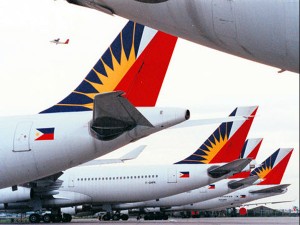SC upholds tax refund for PAL
MANILA, Philippines—The Supreme Court has upheld the Court of Tax Appeals’ order for the Bureau of Internal Revenue (BIR) and the Bureau of Customs (BOC) to refund to Philippine Airlines some P4.55 million in excise taxes that PAL had paid, under protest, in 2007 for its imported cigarette and liquor supplies for its international flights.
In the ruling, the high court’s 3rd Division junked a petition for review on certiorari that the BIR and the BOC had filed against the CTA ruling ordering the refund, contending that they had correctly taxed PAL for the imported commissary supplies.
The high court decision, dated Aug. 27, said the lifetime franchise that the government had granted PAL in 1978 exempts the airline from the payment of excise taxes.
The court noted that under the franchise, the airline is to “pay the government either basic corporate income tax or franchise tax based on revenues and/or the rate defined in the provision, whichever is lower, and the taxes thus paid under either scheme shall be in lieu of all other taxes, duties and other fees.”
It said PAL had presented in context a clear statutory basis for its refund claim against the excise tax, “a claim predicated on a statutory grant of exemption from that forced exaction.”
“It thus behooves the government to refund what it erroneously collected,” the court said in the ruling penned by Associate Justice Presbitero Velasco Jr.
The high court also cited jurisprudence on a similar issue, which said: “[I]f the state expects taxpayers to observe fairness and honesty in paying their taxes, it must hold itself against the same standard in refunding erroneous exactions and payment of such taxes.”
In junking the petition, the Supreme Court upheld the CTA en banc’s Dec. 9, 2013, decision and May 2, 2014, resolution that granted PAL’s refund claim.
The two full-court actions stemmed from the BIR and BOC’s appeals against the CTA 2nd Division decision that first ordered the refund.
The two revenue agencies had argued in their appeal that PAL’s tax exemption through its franchise was revoked by the 1997 National Internal Revenue Code, as amended in 2005. But the tax court, siding with PAL, maintained that the exemption remains in effect.
“The petition lacks merit. It is a basic principle of statutory construction that a later law, general in terms and not expressly repealing or amending a prior special law, will not ordinarily affect the special provisions of such earlier statute,” the high court said in affirming the CTA en banc ruling.
The excise tax covered in the petition includes PAL’s importation of cigarettes and liquor for its commissary supplies between February and March 2007.


